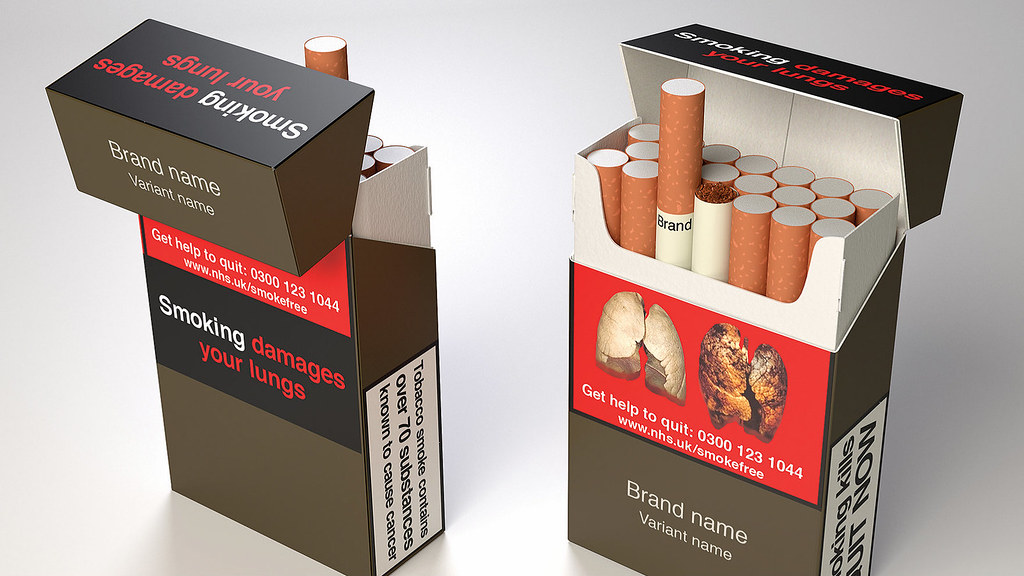Fresh analysis has emerged revealing that nearly half the evidence tobacco companies used to claim standardised packaging would have negative economic or illicit trade impacts consisted of either company-commissioned reports or opinions of those with whom they held some degree of financial relationship.
The study, funded by Cancer Research UK, reviewed 74 pieces of evidence cited by the companies to argue that standardised packaging would have detrimental economic and illicit trade impacts. Of these, there were no independent, peer-reviewed pieces of evidence that supported their position and nearly half (47 per cent) were industry-connected, including reports commissioned by tobacco companies and other evidence from third-parties financially connected to a tobacco company.
Over two-thirds of the ‘evidence’ supplied by and financially linked to tobacco companies was in fact found to be opinion-only, supplied by business or retail organisations with tobacco company members; Trade Unions with tobacco company employees; and 51 MPs opposed to standardised packaging – 7 of whom have taken tobacco industry hospitality.
Although nearly half the evidence cited by tobacco companies to argue that standardised packaging will have detrimental economic and illicit trade impacts was financially connected to them, in 91 per cent of cases this connection was not disclosed.
This calls into question the sensitivities of stakeholder consultation, required within the Government’s Better Regulation Framework, to conflicts of interest. Given the report’s findings, the authors suggest that if tobacco companies are allowed to continue to submit evidence to public consultations, it should be compulsory for them, in line with Article 5.3 of the Framework Convention on Tobacco Control, to exercise transparency and disclose any potential conflict of interest, not only of their own position but also of the evidence which they cite to support their arguments.
Author Dr Karen Evans-Reeves explains: “There is no independent evidence that supports the tobacco industry’s arguments that standardised packaging will lead to an increase in illicit trade or have adverse effects on retailers. Nevertheless, tobacco companies have created the opposite impression. By citing evidence from third-parties without disclosing that these individuals and organisations have financial links to the industry, tobacco companies have created a large network of opposition.”
In April this year, Sir Cyril Chantler reported back on his review into the introduction of standardised packaging in the UK, stating: “I am not convinced by the tobacco industry’s argument that standardised packaging would increase the illicit market... The tobacco industry has a history of attacking new tobacco control measures on the basis that they will boost illicit sales.”
Yet eight months later and in response to a recent parliamentary questionon the introduction of standardised packaging of tobacco products, Parliamentary Under-Secretary of State for Health Jane Ellison MP affirmed that Government was still to make a final decision on the policy. In her response she cited a need to weigh up the arguments around illicit tobacco before making a final decision.
Previous studies by the Tobacco Control Research Group have highlighted how the tobacco industry has used the illicit trade argument as a lobbying tactic to derail legislation towards standardised packaging.
Professor Anna Gilmore, also of the Tobacco Control Research Group, added: “We have now shown unequivocally that the tobacco industry’s arguments against standardised packaging do not hold water. With Lynton Crosby, who has long-standing tobacco industry links, working at the heart of the Conservative party and growing evidence that the real problem with illicit is the tobacco industry’s failure to control its supply chain, the government has some serious questions to answer about why this policy remains on hold. It would appear the government is putting the interests of the tobacco industry above those of our children.”
George Butterworth, Cancer Research UK's tobacco policy manager, said: "By failing to disclose financial links to misleading evidence, this is lobbying at its worst. For years misinformation has been their currency, but as the success of plain, standardised packaging in Australia becomes clear - now with record low smoking rates - Big Tobacco is looking spent.
"Independent evidence consistently demonstrates the role standardised packaging can play in protecting children from a deadly addiction. Now the UK government must treat the tobacco industry’s spin with the contempt it deserves and introduce regulations without delay."
To access the latest paper, ‘It will harm business and increase illicit trade’: an evaluation of the relevance, quality and transparency of evidence submitted by transnational tobacco companies to the UK consultation on standardised packaging 2012’ see http://tobaccocontrol.bmj.com/content/early/2014/11/28/tobaccocontrol-2014-051930.full.pdf+html.
This work is funded by Cancer Research UK: Grant Number grant number C48078/A16481.
If you found this interesting you might also enjoy reading:

